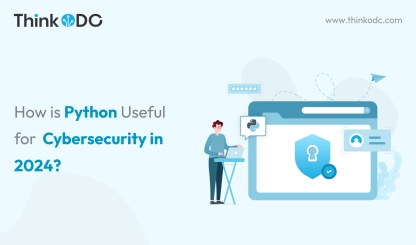Python has firmly established itself as one of the most popular programming languages, captivating developers worldwide with its simplicity, versatility, and powerful capabilities.
According to the survey of 2022, there are around 15.7 million developers who have recognized the potential of Python and joined its vibrant community. However, not all developers can fully leverage Python's capabilities and achieve success in their development endeavors.
To truly achieve your development objectives, it is crucial to unlock and implement the secrets of Python development.

In this blog post, we will unveil a treasure trove of invaluable tips, tricks, and best practices that will elevate Python skills to new heights. From harnessing the full potential of Python libraries to mastering code organization, debugging prowess, memory management, and beyond, we have carefully curated this guide to equipping you with the insights needed to optimize your Python projects for success.
Let's unveil the latest tricks and practices that will empower you to write elegant and efficient Python code and lead your development towards success.
Python Development Tips
Unlocking the true potential of Python development requires more than just mastering the syntax. It's about leveraging the right techniques, tools, and libraries to create efficient, readable, and maintainable code.
In this section, we've compiled a collection of essential Python development tips that will revolutionize your programming journey. Whether you're a seasoned Python developer or just starting out, these tips for Python programming will get you started on the right track.
So, let's dive in and discover how you can improve your code and supercharge your development process.
Tip 1: Effective Use of Python Libraries
Python's vast library ecosystem is a goldmine for developers. By harnessing the power of popular libraries like NumPy, Pandas, Django, and TensorFlow, you can turbocharge your development process.
These libraries offer pre-built solutions for various domains, saving you time and effort. Familiarize yourself with the libraries that align with your project requirements and learn how to leverage their functionality effectively.
Tip 2: Code Organization and Readability
Writing well-organized and readable code is essential for collaboration and long-term maintenance. Structure your code into logical modules and functions, using meaningful names that reflect their purpose.
By following the widely adopted PEP 8 style guide, you ensure consistency and make your code more readable. Adding comments to clarify complex logic or document your code will also go a long way in improving its understandability.
Tip 3: Effective Debugging and Error Handling
Bugs are inevitable, but effective debugging and error handling can save you significant time and frustration. Take advantage of tools like Python's built-in debugger (pdb) or dedicated debuggers like PyCharm.
Set breakpoints, step through your code, and inspect variables to pinpoint issues quickly. Implement robust error handling with try-except blocks to gracefully handle exceptions and provide meaningful error messages.
Tip 4: Efficient Memory Management
While Python's automatic memory management is convenient, optimizing memory usage can boost performance. Avoid unnecessary object creation, reuse objects when possible, and choose appropriate data structures to minimize memory overhead.
Tools like memory profilers can help identify memory-intensive areas in your code, allowing you to optimize them. Efficient memory management ensures your applications run smoothly and efficiently.
Tip 5: Leveraging Python's Standard Library
Python's standard library is a treasure trove of useful modules and functions. Take advantage of it to simplify your development tasks.
Whether it's working with files using the OS module, handling dates and times with the datetime module, or dealing with JSON using the JSON module, the standard library has you covered. By leveraging these built-in capabilities, you can avoid reinventing the wheel and expedite your development process.
Read more: Want to discover the benefits of Python automation?
Python Development Tricks
Mastering Python development goes beyond following the basics. It involves employing clever tricks and techniques that can optimize your code and streamline your workflow.
Let's uncover some powerful tricks for Python development that will take your Python development to the next level:
Trick 1: Python Coding Techniques
Discover advanced coding techniques like list comprehensions, generator expressions, context managers, and decorators. These tricks allow you to write more concise and expressive code, making your programs elegant and easier to maintain.
By utilizing these techniques effectively, you can improve code performance and reduce repetitive boilerplate.
Trick 2: Effective File Handling
Working with files is a common task in Python applications. Learn efficient file handling tricks such as using the “with” statement for automatic resource cleanup, leveraging file iterators for memory-efficient processing, and employing the “CSV” module for working with CSV files.
You'll also explore strategies for handling large files by reading them in smaller chunks or utilizing optimized libraries like “Pandas”.
Trick 3: Performance Optimization
When performance matters, optimization techniques can make a significant impact. Profile your code using tools like “cProfile” to identify performance bottlenecks. Take advantage of built-in functions and data structures for faster operations.
Implement caching to store and reuse expensive computations. Explore algorithmic optimizations to reduce time complexity. These tricks can greatly enhance the speed and efficiency of your Python applications.
Trick 4: Concurrency and Parallelism
Python offers options for handling concurrent tasks and leveraging multiple cores. Delve into concurrency libraries such as “Threading”, “Multiprocessing”, and “Asyncio”. Understand the differences between processes, threads and coroutines.
Learn how to write concurrent code that avoids common issues like race conditions and deadlocks. By effectively utilizing concurrency and parallelism, you can enhance the responsiveness and scalability of your applications.
Trick 5: Testing and Test-Driven Development (TDD)
Testing is crucial for ensuring the correctness and reliability of your code. Embrace the principles of Test-Driven Development (TDD) and discover how to write effective unit tests using frameworks like “Unittest” or “Pytest”.
Learn techniques for mocking dependencies and performing integration testing. By adopting a test-driven approach, you'll not only catch bugs early but also improve the maintainability and refactoring process of your code.
Read More: Discover why Python is the smart choice for your next project.
Python Development Best Practices
To achieve excellence in Python development, it is crucial to adhere to industry-recognized best practices. These practices not only ensure code quality but also promote collaboration, maintainability, and scalability.
Let's explore the best Practices for Python developers that will elevate your projects to new heights:
Best Practice 1: Following PEP 8 Guidelines
Python Enhancement Proposal 8 (PEP 8) serves as the definitive style guide for Python code. By adhering to PEP 8 guidelines, you ensure consistency, readability, and maintainability in your codebase.
Learn about indentation, naming conventions, line length limits, and other important aspects outlined in PEP 8. By writing code that conforms to these guidelines, you'll enhance code readability and make collaboration with other developers seamless.
Best Practice 2: Version Control with Git
Version control is essential for effective collaboration and code management. Git is the de facto standard for version control, enabling you to track changes, collaborate with others, and revert to previous versions when needed.
Learn the fundamentals of Git, including creating repositories, committing changes, branching, merging, and resolving conflicts. By leveraging Git, you can streamline collaboration, maintain a history of changes, and ensure the integrity of your codebase.
Best Practice 3: Documentation and Code Comments
Clear and comprehensive documentation is key to successful projects. Document your code by providing high-level overviews, module descriptions, function and class documentation, and usage examples. Utilize tools like Sphinx to generate professional-looking documentation.
Additionally, strategically place code comments to explain complex logic, assumptions, or any non-obvious parts of your code. Good documentation and comments make your codebase more accessible, assist in future maintenance, and facilitate smoother onboarding for new team members.
Best Practice 4: Collaborative Development and Code Reviews
Collaboration is a cornerstone of successful software development. Encourage collaborative development by utilizing code repositories, issue trackers, and communication tools. Embrace the practice of code reviews, where team members provide feedback on each other's code.
Conduct thorough code reviews that cover style, logic, performance, and adherence to best practices. Code reviews improve code quality, identify potential issues early, and foster knowledge sharing within the team.
Best Practice 5: Continuous Integration and Deployment (CI/CD)
Continuous Integration and Deployment (CI/CD) is a powerful practice that automates the process of building, testing, and deploying code changes. Adopt CI/CD tools like Jenkins, Travis CI, or GitLab CI/CD to automate testing, ensure code quality, and streamline the deployment process.
Implement automated unit tests, integration tests, and even end-to-end tests to catch issues early. By embracing CI/CD, you can deliver software faster, improve reliability, and increase the overall efficiency of your development pipeline.
By embracing these Python development best practices, you'll establish a solid foundation for success.
Final Words
In this exploration of Python development secrets, we have uncovered a wealth of knowledge and practices that can catapult your skills to new heights and take your project towards success.
By applying the tips and tricks we discussed, you can optimize your development workflow, write clean and efficient code, and embrace best practices for collaboration and scalability.
Remember to follow PEP 8 guidelines, leverage version control with Git, document your code comprehensively, foster collaboration through code reviews, and automate processes with CI/CD.
Adopting and adhering to these tips, tricks, and best practices can lead you towards the success of your Python development project.
If you're looking to take your projects to the next level, don't hesitate to hire dedicated Python developers who can bring expertise and innovation to your team.
You can hire Python developers from ThinkODC, a leading software development company with strong expertise in Python programming. Our team of skilled and experienced developers can help you build robust and scalable Python applications tailored to your specific business needs.
With a proven track record of delivering high-quality solutions, ThinkODC ensures that you have access to top-notch Python developers who are well-versed in the latest technologies and industry best practices.
Whether you need assistance with web development, data analysis, machine learning, or any other Python-related project, ThinkODC can provide you with the right talent to drive your success.




